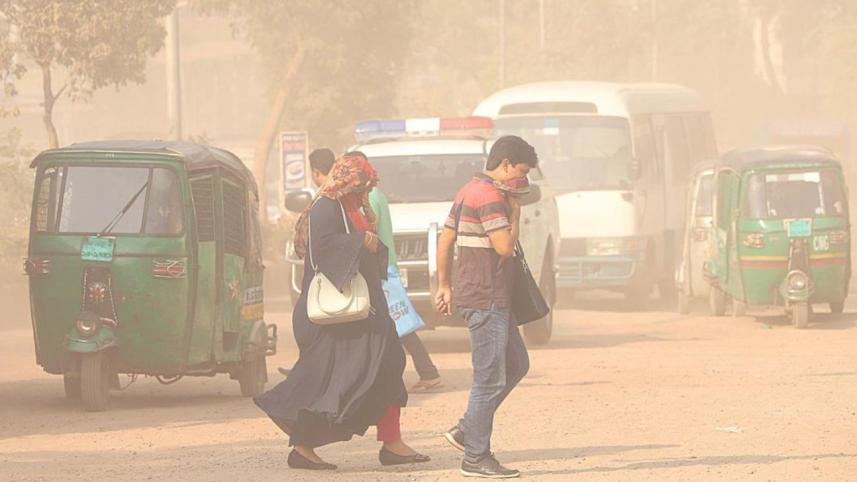Time to declare an emergency over air quality

Bangladesh's consistent bottom-of-the-table ranking in the world in terms of air quality has long been a thorn in the side of the government. Yet, for some mysterious reason, it has failed to generate the sense of urgency that such a grave public health issue warrants. This, we hope, will change after the publication of the latest World Air Quality Report, which declared Bangladesh's air quality as the worst in the world. Our country has earned this dubious honour for the fourth consecutive year now, while Dhaka, the jewel in its crown, has been adjudged the world's second-most polluted capital city.
The report, if taken in the right spirit, should set all alarm bells ringing in our policy circle. The risks of air pollution as the world's largest environmental health threat are now demonstrably clear, as it accounts for seven million deaths every year. In 2021 alone, the deaths of 40,000 children under the age of five were directly linked to PM2.5 air pollution. In the absence of disaggregated data, we can only guess that Bangladesh is witness to a large number of these deaths or other air-pollution-induced health risks. If this still doesn't evoke a sense of urgency among the policymakers, perhaps the following revelation will: the average life expectancy of a Bangladeshi, as per a recent estimate, is being reduced by almost three years due to polluted air, nearly the same as the use of tobacco.
Among the main causes of pollution are vehicular emissions, fumes from factories, brick kilns and automobiles, and dust accumulations from other sources, especially in the cities. There is no dearth of research on their effects, nor, apparently, of official response to them, at least on paper. We have laws, dedicated state agencies, a national action plan, and other regulations to combat air pollution. Often, we see ritualistic displays of action geared to that end. But nothing seems to be working. Clearly, what we lack is a comprehensive and coordinated effort to ensure that all policies and actions are focused on generating a visible improvement of air quality.
We urge the government to match its rhetoric and displays of action with actual preventive measures. Given the current situation, it should declare a national emergency over our air quality. A big dent can be put into the current levels of pollution simply through the implementation of fines and punishment for firms and individuals violating pollution-related regulations. Phasing out old vehicles as well as use of diesel in automobiles, and moving to cleaner fuel sources are also a must-do, as is shuttering all traditional brick kilns. These are but some of the steps the government must take to combat this dangerous threat.



 For all latest news, follow The Daily Star's Google News channel.
For all latest news, follow The Daily Star's Google News channel.
Comments